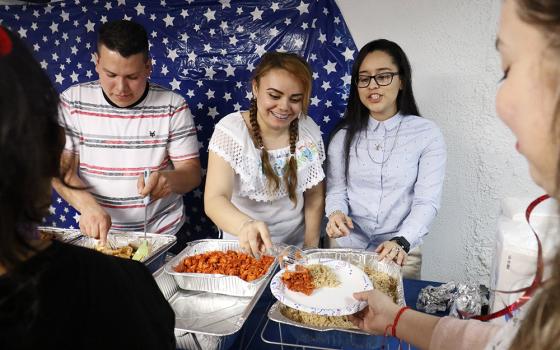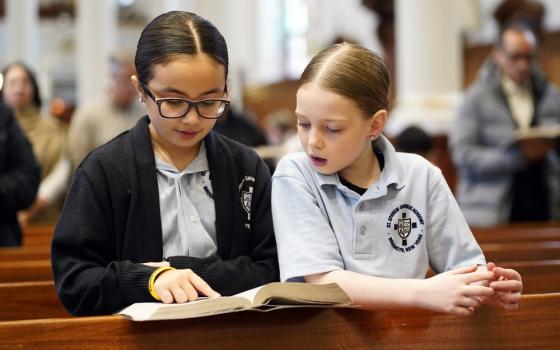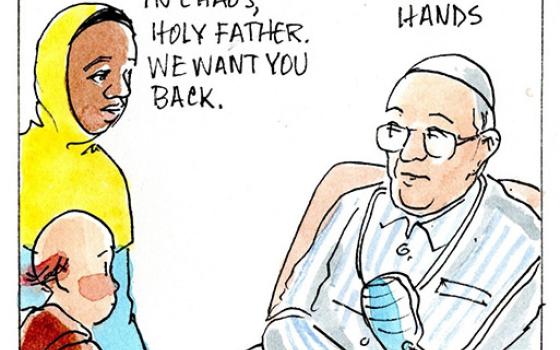Anxiety, mistrust and division among class and racial lines: such is the mood of the U.S. electorate, according to the nonpartisan Public Religion Research Institute (PRRI), which just released its sixth annual American Values Survey.
“Feelings of anxiety and pessimism are notable among white Americans,” said PRRI research director Dan Cox in a press release, “but are especially pronounced among white evangelical Protestants and members of the Tea Party.”
The 2015 survey found that 72 percent of Americans believe that the country is still in a recession, unchanged from 2014.
Meanwhile, 49 percent feel the country’s best days have already passed, up from 38 percent in 2012.
That belief is particularly strong among white working-class Americans.
“The data shows that on virtual every measure of anxiety, white working-class respondents are more anxious and more depressed than virtually any group,” said Henry Olsen, senior fellow at the Ethics & Public Policy Center, during a panel discussion at the Brooking’s Institution in Washington, D.C. on Tuesday.
At the same time, “in this survey, as in many others in the past 10 years, African-Americans and Hispanics are more optimistic about their own and their children’s chances to get ahead than are white Americans,” said Karlyn Bowman, senior fellow and research coordinator at the American Enterprise Institute.
Racism and police brutality
The study found large discrepancies in how Americans view racism, and who suffers from it.
Nearly two-thirds of white Americans believe the police killings of unarmed black men like Michael Brown and Freddie Gray to be “isolated,” one-off incidents, compared to roughly half of the total American public.
That number climbs further among white religious. Seventy-one percent of white Catholics believe the killings to be isolated, mirroring white evangelical Protestants, at 72 percent, and white mainline Protestants, at 73 percent.
Forty-three percent of Americans say that “discrimination against whites has become as big a problem as discrimination against blacks and other minorities,” according to the survey press release.
The fragmentation in the country on issues of race “is as intense now as it was in the 1960s and 70s,” said Joy Reid, national correspondent for MSNBC, at the panel discussion.
Reid noted the “diverging views” between black, white and Hispanic Americans about what “constitutes racism,” the “intensity with which a lot of white working-class voters and white Republicans in general believe that the real focus of racism [is now] against them,” and the tendency among many white Americans to discredit African-American concern over police brutality.
White working-class woes
“The white working-class are much more likely to think we are still in a recession,” Olsen said. They are also “more likely to think America’s best days are in the past,” and, “more likely to say that U.S. culture has gotten worse since the 1950s. … They are more likely to say that hard work does not lead to success.”
This is because of wage stagnation, he said, but also because of “a loss of public respect.”
“I don’t think you would go into white working-class neighborhoods now and think that their virtues, their way of life, is considered worthy of respect in popular culture,” he said. “White evangelical Protestants and the white working-class have seen a massive decline in public influence and in respect according to their views in the public square.
“It’s no wonder then that they think that America’s best days are behind us,” he added. “Because for them, they are.”
But that perception may not be rooted in reality, said Reid.
“When you look at this poll, a majority of white Americans, 55 percent of the poll, believe white men are facing a decline of cultural influence in American society,” she said. But “fewer than half of American-Americans believe that … and [only] 42 percent of Hispanics believe that white men are facing a decline in public influence.”
What’s the bottom line?
“We are not on the same page, and I think we are kind of Balkanizing into two different Americas, what I call the old America and the new America,” Reid said. “The old America believes itself to be in decline and with it, the country, and the new America has more optimism even as it has an equal amount of economic anxiety.”
Immigrants and inequality
According to the survey, Americans are becoming less welcoming of immigrants.
"Compared to a few years ago, Americans report less tolerance when encountering non-English speaking immigrants," the press release states. "Nearly half (48 percent) of Americans agree that they are bothered when they come into contact with immigrants who speak little or no English, compared to 40 percent in 2012."
That number jumps to 63 percent among "white working-class" Americans.
At the same time, all Americans are growing more concerned about economic opportunity, or lack thereof.
Sixty-five percent believe “one of the big problems in this country is that we don’t give everyone an equal chance in life,” up from 53 percent in 2010.
A full 76 percent support raising the minimum wage from $7.25 to $10.10 per hour. And 85 percent support “requiring companies to provide all full-time employees with paid sick days if they or an immediate family member gets sick.”
Eighty-two percent support “requiring companies to provide all full-time employees with paid leave for the birth or adoption of a child.”
[Vinnie Rotondaro is NCR national correspondent. His email address is vrotondaro@ncronline.org.]
Editor's note: This story was updated with quotes from a panel discussion at 12:45 p.m. CST.


